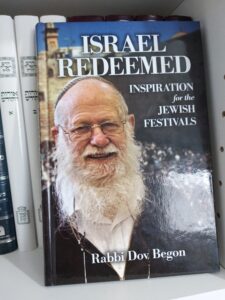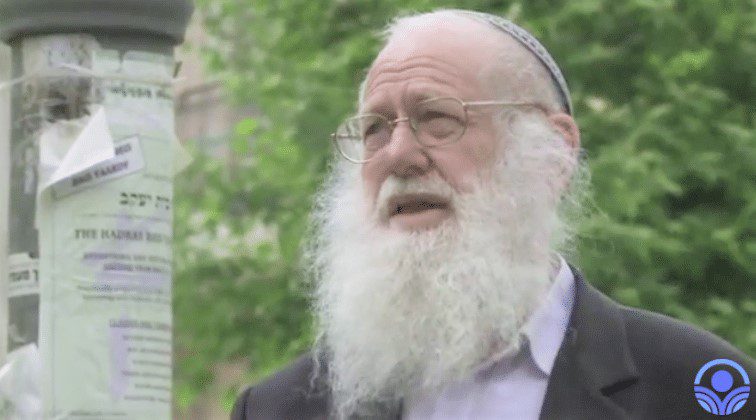Rabbi Shimon Bar Yochai Loves our People, Land and Torah.
by HaRav Dov Begon

The bonfires that the masses of our people light throughout Israel and the world on Lag Ba-omer are a sort of memorial candle for the noble spirit of Rabbi Shimon Bar Yochai, (aka Rashbi,) who ascended to the highest heavens on Lag Ba-omer. No personage in Jewish history has merited a memorial day in which the entire Jewish People takes part, from the entire social spectrum and from all streams of Judaism, observant and nonobservant, right wing and left, and in almost all communities. Not one of the patriarchs, Abraham, Isaac and Jacob, Moses, Aaron or King David, and not one of the illustrious rabbis of our people has ever merited that the entire nation should recall their name and make a hilula, a memorial celebration, on the anniversary of their passing.
How did Rashbi merit this great honor? Some say it is because he wrote the holy Zohar, which illuminates the souls of those who delve into Jewish mysticism and the secrets of the Jewish People. That is our inner wisdom, the Kabbala. Yet we must ask in turn how Rashbi was so privileged to have the holy Zohar revealed to him. Indeed, when we study and ponder the story of Rashbi’s life, we discover that he displayed self-sacrifice on behalf of the People, Land and Torah of Israel, as our sages taught us:
One time Rabbi Yehuda, Rabbi Yossi and Rashbi were seated together, and Yehuda ben Gerim was sitting with them. Said Rabbi Yehuda, “How fine the deeds of this nation [the Romans]! They installed marketplaces, bridges and bathhouses!” Rabbi Yossi remained silent. Rashbi responded, “They did nothing that didn’t serve their own interests. They installed marketplaces to house harlots there; bathhouses so they could pamper themselves, and bridges as a means of collecting royal tolls.” Yehuda ben Gerim went and reported their words to the Romans . . . (Shabbat 33b).
The results are well-known. Rashbi was persecuted and forced to flee with his son, and to hide in a cave for twelve years. His unwillingness to flatter the Romans and resign himself to their ruling over Eretz Yisrael stemmed from great love and faith in our People, Torah and Land. By such means he merited to discover many secrets of Jewish mysticism, recorded in the holy book of the Zohar.
Today as well, those who carry on the spirit of Rashbi and his mentor Rabbi Akiva, are the ones who truly love the People, Torah and Land of Israel. These Jews risk their lives for the glory of Israel and God, which is being revealed through Israel’s rebirth in Eretz Yisrael. Indeed, the greatest kabbalists through all of the generations were lovers of Eretz Yisrael and came to live there.
These include Ramban, the Arizal, Ramchal, and the disciples of the Baal Shem Tov and of the Vilna Gaon.
In recent times we have seen that master of the light of Torah, Rabbi Avraham Yitzchak Kook, zt”l, together with his disciples and his disciple’s disciples, totally devoted to settling Eretz Yisrael and learning the Torah of Eretz Yisrael. By doing so, they increase the Torah’s light, the light of love and faith, and they carry on the path of Rashbi.
The day is not far off when through us will be fulfilled, “Bar Yochai! Fortunate are your forbears! Fortunate is the nation that learns from you, fortunate are those who dwell on your secret, enveloped in the breastplate of your Urim VeTumim.”
Three Crowns
Rabbi Shimon bar Yochai says, “There are three crowns: the crown of Torah, of priesthood and of monarchy, and the crown of a good name surpasses them all” (Avot 4:14). Rashi explains, “Someone with a good name and good deeds is better than anyone else, as it says, ‘A good name [i.e. reputation] is better than precious ointment’ (Ecclesiastes 7:1).” Rabbi Shimon bar Yochai, with his “good name,” was privileged to write the Zohar. That work is shedding more and more light through its sweet luminance, and it is by virtue of this luminance that we leave the exile (Zohar, Naso). How much more does it light our path when we are already rising to rebirth in our Holy Land which Rabbi Shimon bar Yochai loved so much, and for which he showed such self-sacrifice.
Rabbi Shimon bar Yochai was a disciple of Rabbi Akiva. The two of them, master and disciple, both felt the pain of the nation, which in those days was under Roman control. The Romans enacted decrees against the Jewish people, with the goal of humiliating them, subjugating them and weakening them, especially by their decree against Torah study. They knew that nothing so strengthens the Jewish people, giving them the fortitude to withstand the grave crisis following the destruction of the Temple, more than the study of our holy Torah.
Indeed, Rabbi Akiva would gather large crowds and teach Torah. He had no fear of the Romans. Ultimately, however, he was arrested, imprisoned and taken out to be cruelly executed. The Romans combed his flesh with iron combs. In his great love for God, he accepted upon himself the yoke of the kingdom of heaven, and his soul departed as he recited the Shema.
Rabbi Shimon bar Yochai followed in the path of his master, Rabbi Akiva (see Berachot 61b) and he spoke negatively against the Romans, despite the danger. Ultimately he was compelled to flee from them and to hide for twelve years in a cave, together with his son. Neither Rabbi Akiva nor Rabbi Shimon bar Yochai could bear the humiliation of the Jewish People – the nation that God chose from all others – and they put themselves at risk for the glory of their people.
Today, after thousands of years of exile in which the glory of Israel was trampled to the dust, how fortunate we are that we are returning to our land, and that the glory of the Jewish people is being reinstated. The Torah is returning to its abode. The decrees of the Romans and of all of Israel’s enemies through the exile, to prevent Jews from learning Torah, did not succeed. The self-sacrifice of Rabbi Akiva and of all the Jews over Torah learning did not go to waste. Today, thank God, the State of Israel is the world center of Torah learning. We are witnessing the great thirst of our nation to learn about the light of Rabbi Shimon bar Yochai, which is increasing from day to day, echoing the plea of the sweet singer of Israel, King David: “Open my eyes that I may behold wondrous things from Your Torah” (Psalm 119:18). That light is hastening our own redemption and the redemption of the world.






